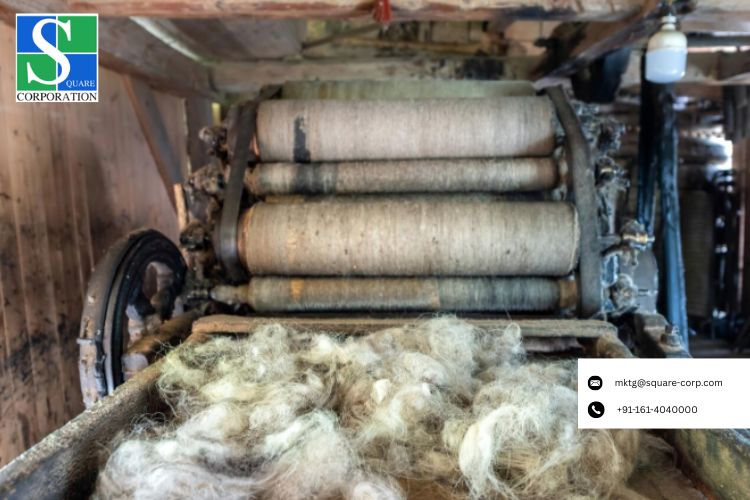Gujarat’s textile sector has long been the backbone of India’s fabric exports, but which mills truly set the standard for quality yarn? If you’re sourcing bulk yarn for manufacturing or export, choosing the right Spinning mill in Gujarat can be the difference between ordinary and exceptional production runs.
Why Gujarat Leads India’s Yarn Market
The state’s textile ecosystem is a perfect storm of heritage, infrastructure, and innovation. With ports like Mundra simplifying exports and robust cotton farming nearby, mills can deliver consistent supply and pricing. According to India’s Ministry of Textiles (source), Gujarat contributes more than 30% of India’s cotton production, giving its spinning units a natural advantage in both cost and quality control.
Key Players Setting Industry Benchmarks
Several mills stand out for their commitment to high-grade yarn and sustainable practices. These leaders don’t just meet global standards—they often set them:
- Arvind Limited: Known for innovation, Arvind integrates eco-friendly methods like water recycling and low-impact dyes, making it a top choice for apparel brands focused on sustainability.
- Sintex Industries: A pioneer in blended and specialty yarns, Sintex’s R&D team continually experiments with fiber mixes to improve strength and texture.
- Prachi Spinning: A rising mid-size mill that impresses B2B buyers with transparent pricing and quick turnaround times without compromising on fiber quality.
What B2B Buyers Should Look For
Whether you’re an apparel exporter or a home textile brand, a few selection criteria can protect your bottom line:
- Consistency: Inspect batch samples for uniform twist and tensile strength. Even minor variation can disrupt downstream weaving or knitting.
- Certifications: ISO, OEKO-TEX, or GOTS certifications ensure mills follow global safety and sustainability protocols.
- Scalability: Confirm monthly output capacity and backup supply plans to handle seasonal surges.
Sustainability Is Now Non-Negotiable
The global textile market is shifting toward low-impact materials, and Gujarat’s mills are responding. Many have partnerships with Organic Cotton Manufacturers in India, ensuring traceability from farm to factory. Some also experiment with recycled blends to cut waste and energy use, a smart move as brands face increasing ESG scrutiny.
Emerging Trends to Watch
- Recycled Blends: Demand for yarn made from post-consumer textiles is surging. Leading Recycled polyester Fabric Manufacturers are now partnering with Gujarat mills for innovative yarn-fabric hybrids.
- Digital Quality Tracking: RFID tagging and AI-powered inspection systems help ensure batch-level traceability, a growing requirement for European buyers.
- Value-Added Yarn: Mills are introducing moisture-wicking and anti-bacterial treatments to appeal to sportswear and medical textile segments.
Practical Tips for Negotiating With Mills
Pricing is only half the story. Consider these tactics to lock in the best deal:
- Request a pilot run before committing to large orders to check performance on your own machinery.
- Negotiate long-term contracts when cotton prices are low—hedging against market volatility can save significant costs.
- Visit the facility. A single walk-through reveals more about operational discipline than hours of calls and emails.
FAQs
What makes Gujarat a preferred destination for yarn sourcing?
The state offers abundant cotton, advanced spinning technology, and port proximity, lowering both production and logistics costs.
How can I verify the quality of yarn before bulk purchasing?
Request independent lab test reports for tensile strength, count uniformity, and contamination levels, and inspect on-site when possible.
Are Gujarat mills compliant with international sustainability norms?
Many leading mills hold certifications like GOTS or OEKO-TEX, ensuring environmentally responsible production.
Do these mills handle custom blends or specialty yarns?
Yes, top-tier mills often maintain R&D departments to create customized blends and functional yarns for niche applications.
Also Read: How Textile Brands Consider the Best Eco Fabric Manufacturer
Final Thoughts
Gujarat’s spinning mills offer more than yarn—they provide reliability, scalability, and innovation. For B2B buyers, partnering with these industry leaders means staying ahead in a competitive global market while supporting sustainable production practices.
Blog development Credits:
This article was envisioned by Soma Maiti, crafted with insights from modern AI platforms such as ChatGPT, Google Gemini, and Copilot, and finally fine-tuned for SEO by Digital Piloto Private Limited.



